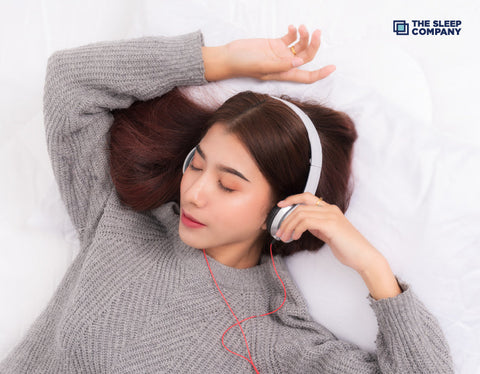My Cart

The Different Sleep Patterns and Their Advantages


When it comes to sleep, there are many misconceptions about its patterns and hours. Many believe that sleeping overnight for 8 to 9 hours is enough, and this is the only helpful practice, and sleeping at odd hours of the day other than night is harmful and unproductive.
However, that’s not the case. In fact, there are different sleeping patterns, and every way has its benefits for individuals.
Different patterns of sleep
Sleep patterns are bifurcated into three primary patterns that are monophasic, biphasic and polyphasic
1. Monophasic sleep:
It’s the commonly known and accepted sleep pattern. Monophasic sleep is a one-time a day sleep in which a person continuously sleeps for 7 to 8 hours.
2. Biphasic sleep:
In biphasic sleep patterns, people sleep twice a day, one for long hours at night and the second during the afternoon for a few minutes or a couple of hours. Afternoon sleep or siesta is widespread in some parts of the world, like Latin America, Mediterranean countries, and some regions of India like Goa, West Bengal and Pune.
3. Polyphasic sleep:
This sleep pattern comprises more than 5 to 6 sleep sessions throughout the day. Many people do not recommend polyphasic sleep due to its crazy design. However, most researchers suggest it is a beneficial and productive sleep pattern.
There are three types of polyphasic sleep:
- Everyman
In this type, a person has three hours of core sleep with three 20-30 minute naps as refreshments throughout the day. Core sleep includes both non-rapid eye movement (NREM) and rapid eye movement (REM) sleep.
- Uberman
It is a complex type of polyphasic sleep where a person has six 30-minute naps throughout the day. Uberman polyphasic sleep generally allows three hours of sleep a day and is less flexible to follow.
- Dymaxion
Dymaxion is the most complex and intricate type of sleeping pattern. The person who follows the dymaxion pattern only gets 2 hours of sleep and needs to nap a maximum of 30 minutes every 6 hours.
Which phase is better for health?

Since everyone boasts different adaptability, not everyone can get used to every sleeping pattern. Thus, while some may find themselves productive using monophasic practices, some may work better with biphasic patterns.
Also, polyphasic sleep patterns are considered complex. Polyphasic types are counted in intermediate to an extreme level, where every man is though less complicated, it’s not for everyone. Uberman is for people with superhuman abilities or goals, while dymaxion is for the extremists.
Many people consider monophasic sleep to be better, but in reality, all three patterns have their benefits. And according to research, biphasic or polyphasic sleep have significant benefits on health, such as,
- Shorter sleep hours, resulting in more effective active hours.
- Enhanced sleep quality resulted from higher time spent in NREM and REM sleep.
- Dream recollection, or the capacity to remember your dreams, has improved.
- Enhanced energy throughout the day.
How to improve your sleep?
No matter which sleep pattern a person follows, they must consider whether it is suitable for them or not. Also, if required, they must take an expert’s advice about the same to avoid any health issues.
Also, despite following any sleep patterns, one can benefit from below mentioned habits which will help them improve their sleep quality.
Such as,
Do exercise
Exercise is essential to improve sleep quality as well as overall health. Thus, doing an activity every day for at least 30 to 60 minutes helps you become flexible, improves blood circulation and is more productive, eventually resulting in better sleep quality. Yoga, cardiovascular exercises, and weightlifting work wonders for better sleep quality.
Eat proper food
Eating healthy and nutritional food helps you increase sleep-inducing hormones and improves sleep quality. Many food items or drinks like tart cherries, nuts, dry fruits, vegetables, milk, etc., provide you with nutrients, such as calcium, magnesium, tryptophan, and melatonin. These nutrients further induce your brain to release sleep hormones and help you get better sleep.
Avoiding caffeine, alcohol, and screen time
Avoiding certain things like caffeine, alcohol or screen time is vital to achieving good sleep quality. All these items keep your brain awake by attacking your neural system with energy dosages, just like blue light emitted by a mobile or laptop screen.
Get a proper bed or mattress
Another thing that helps you maximum is getting suitable bedding or mattress for your body type or sleeping position. Since mattresses play a vital role in improving sleep quality, make sure that when you buy mattress online.
The Sleep Company’s SmartGRID mattresses have mattresses that will always provide you with the required amount of comfort and support. Also, they come in different varieties like Smart Luxe for complete luxury, Smart Ortho for back pain relief, Smart Ortho Hybrid for luxury and back support, and Smart Luxe Hybrid Mattress for comfort and support that gives a hotel-like feeling.
Prepare a schedule
Last but not least, making a timetable or a sleep schedule helps you a lot when changing your lifestyle. Whether you are a monophasic or polyphasic sleeper, having a strict sleep and wake time is essential to have other things work out properly like physical, mental or social health.
Bottom line:
Given the above pointers, you may have felt the urge to try them all. But, it’s essential to stick to one pattern for at least half a year to find out its suitability and benefits for you.






























































